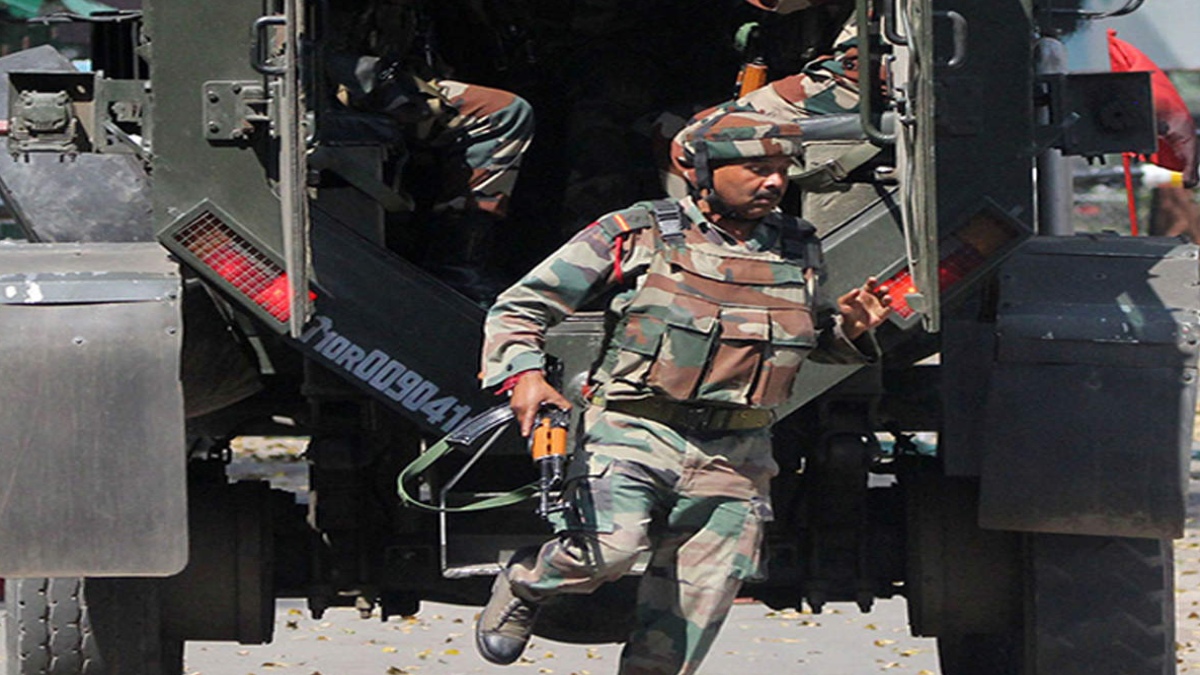


Driven to the wall by security forces, pushed to the brink by their own leadership and utilised as cannon fodder by the Myanmar Army, it seems days for insurgent groups operating in Manipur are numbered now. Valley-Based Insurgent Groups (VBIG) is a term used to identify all Meitei insurgent groups operating in this Northeastern state. These include PLA, PREPAK (Pro), KYKL, UNLF & KCP (all factions). A total of more than 15 sub-groups are known to exist.
These underground groups ruled the Imphal Valley and South Manipur till as late as 2010-12. At one point of time, certain areas in Manipur used to be called “Liberated Zones” and their terror and criminal activities were rampant. However, due to a number of successful operations by security forces, these groups were pushed out from India into Myanmar. Due to the depleted strength, lack of morale and loss of appetite for struggle, many of them split and broke into pieces. Some of them entered into agreements with the government of Manipur.
The VBIGs, though still active, have to a large extent lost their appeal among the Meitei population. Post the lifting of AFSPA in Imphal Valley where the majority of Meitei population resides, there is nothing much for locals to complain. The younger population is keen on learning better entrepreneurial skills, including English and Hindi and move to mainland for better opportunities. PLA and others groups are, therefore, devoid of any ideologically motivated lower rung cadres.
As of today, most of these groups are forced to live in make shift camps across the Indo Myanmar Border. The Myanmarese Army turns a blind eye on their existence as long as they are willing to pay a price in return, which was mostly in cash or in kind in terms of items required in Myanmar including food, medicine or certain other essential supplies. Sometimes, cadres are thrown away to local police/army camps to be used for menial jobs and labours, while the senior rung enjoys a life of luxury.
After a series of joint operations conducted by Indian Army and Myanmar Army, VBIGs were forced to shift their camps from East of Manipur to further North in the areas opposite South Arunachal Pradesh, where they live as tenants to NSCN (KYA). In addition, they were also forced to shift their camps to areas South of Manipur in Chin state. While the group members were safe in these locations, they were too far away from their areas of operations, leading further frustration and ideological isolation. The business community of Manipur also started challenging the writ of these groups soon after they realised their inability to cause much effect from across Myanmar into India. These operations from within India were merely by Over Ground Workers and could not actually instill a sense of fear. This started leading to a financial stress on the groups, which started impacting their relations with their bed fellows across the international boundary.
The Covid-19 pandemic hit the subcontinent in March 2020 and Manipur was one of the worst-hit states. This had a telling impact on the economy in Imphal valley and consequently the paying capacity of those big time businessmen who were still giving VBIG extortion money in return for peace. The small time businessmen no longer fear the VBIGs and only way possible for the VBIGs to extort money was by lobbing grenades at individual’s properties to only cause caution, as any casualty caused would further denigrate their name and popularity among masses.
Meanwhile, a number of cadres started deserting and surrendering to security forces, and testified that the living conditions in camps had deteriorated severely to the extent that even proper meals had become a luxury. Ill-treatment and humiliation at the hands of their own hierarchy and because of their survival being at mercy of Myanmar Army and Myanmar Police, the cadres had no place for surrender and solace. The Myanmar Army had been grudgingly supportive whenever India had asked for any help and they have time and again destroyed few terrorist bases and camps in their territory.
The situation took a new dimension on 1 February, after the coup on 1 February 2021 when reins were taken over by the military junta. The violent protests since then have taken an unprecedented proportion, which was not anticipated by the Myanmar Army. PDF has mushroomed into an armed group with common goals to overthrow the regime, but with no fixed organisation structure. The local civilians themselves have joined the revolution with rudimentary weapons and are causing a heavy toll on the capability of Myanmar Army to respond. In such a scenario, Myanmar Army found an easy target in terms of PLA and other groups of CORCOM to build up its depleting strength. While the total strength of all Meitei groups across Indo-Myanmar border is anticipated to be only armed 300, Myanmar Army finds it convenient to demand the services of these groups in terms of providing manpower for holding their sentry posts, carrying out duties at vehicle check points and even routine patrolling. Grudgingly, the insurgent groups had to accede to the demands, failing which they would have been evicted from the host nation’s soil.
The insurgent groups have so far lost about 40 cadres in a struggle which is alien to them. The local people in Myanmar despise them. The Myanmar Army uses them like cannon fodder resulting in mounting casualties. The leaders of such insurgent groups, while living a life of luxury, are forcing poorer Manipuris into death and desolation. In the latest incident opposite Pangsau pass on 10 August in the area of Waktan village in Myanmar, six PLA cadres were killed in a case of internal feud. It is testimony to the low morale and indiscipline in the organisation which is bereft of any ideological locus standi. Given the circumstances, the militant cadres of VBIGs are in a “lose-lose” situation. The only “winners” seem to be the senior hierarchy of VBIGs and the Myanmar Army.